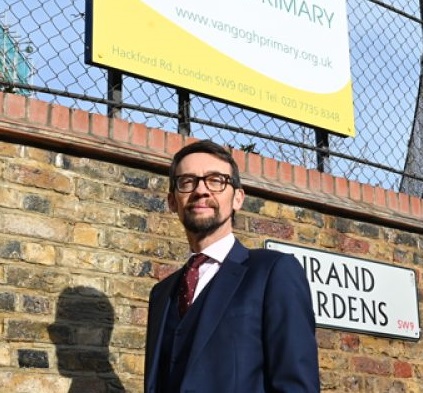Hundreds of schools held INSET days, closed off rooms or turned to remote education today to host polling stations for local elections, despite moves to use fewer schools across England.
Data from a sample of 17 areas shows there was a 35 per cent drop in the number of schools used this year compared to the last comparable election in the same areas. However, this still left many facing disruption, and prompted calls for alternatives.
Councils are under increasing pressure to use fewer schools, especially after the snap general election in 2019 scuppered many plans for nativity plays. Last year, the government allocated funding to help councils avoid using schools in light of pandemic disruption.
But these efforts could be hampered by the recent Elections Act, which requires photo ID to be shown at polling stations. Officials worry the space needed for extra processes will limit the alternatives to schools.
Elections were held in all 32 London boroughs, 33 metropolitan boroughs, 60 district councils and 21 unitary authorities. Results were expected to be announced from the early hours of Friday morning.
Snap elections ‘a real pain’
Whitehill Junior School in Hertfordshire allocates the first Thursday in May as an INSET day. It has to close because of its size and layout, and cannot provide remote learning as teachers would still need to use the buildings.
Head Steve Mills said the approach worked because of “careful planning” and informing parents well in advance.
But unexpected elections, like in 2019, were a “real pain”. Schools can’t refuse to be used as polling stations, but are able to request councils make alternative arrangements.
“We shouldn’t be disrupting children’s learning, whether you’re recovering from a pandemic or not.”
Welling School in south east London announced it would educate its pupils remotely yesterday, giving access to work via Google Classroom.

And the Dunraven Educational Trust said one of its south London primary schools remained open, despite being used as a polling station, while another provided online lessons to two year groups.
But David Boyle, Dunraven’s chief executive, said schools should not be used as polling stations “unless there’s absolutely no choice”. It was “crazy for schools to have to close for a day when other buildings that can be used exist…this year more than ever”.
For some schools, polling day presents an opportunity to bring staff together.
David Atter, executive principal of Noel Park primary in north London, said a day without pupils was a “rare occurrence”. Staff came together to evaluate the curriculum and suggest improvements for the next academic year.
“This allows all staff to talk and contribute without the need to pull anyone for cover and is an important yearly tool for our curriculum development.”
New law creates potential headache
Other schools have avoided full closures by separating off parts of their sites.
Only one of the ten schools In Portsmouth used as polling stations had to close.
Mike Stoneman, the council’s deputy director of education, said it “continued to identify alternative venues” but admitted “this has not always been possible in certain areas”.
He also warned new requirements under the Elections Act were “likely to limit the alternative options available due to the space required”.
Sandwell, in the Midlands, has reduced the number of school polling stations from 42 to 24, and is “working to reduce that number further for future elections”.
In Enfield, north London, the number of schools used has reduced from 26 to 20, and five opened “as normal” with polling stations in temporary buildings.
Calderdale council has cut the number of its schools used from 26 to 12 following a “major piece of work” after elections last year.
Robin Tuddenham, the council’s chief executive, said some schools scheduled staff training days for the day of the election. “Where this is not the case, they will ensure that students can continue their learning in another way, such as through virtual learning.”
In Waltham Forest, north east London, the number of schools used was cut from 31 in 2019 to 20 in 2021 and then to 15 this year.
A spokesperson said the council had “worked to move away from schools”. But in some more residential areas, without community or religious centres, it sometimes had no other option.
















Your thoughts